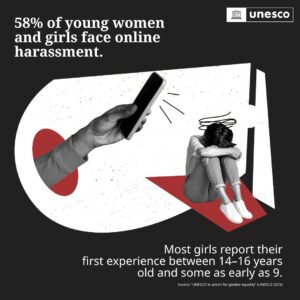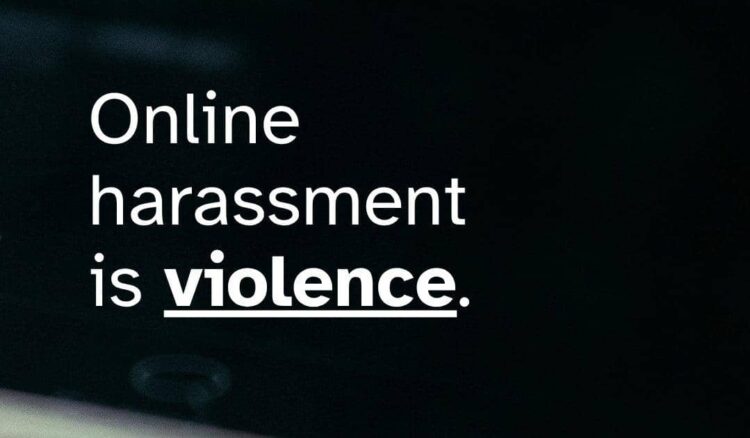OPINION
Digital spaces have become our modern public squares, essential for education, work, and public discourse. Yet, they are increasingly hostile environments for women and girls, who face alarming rates of online harassment, cyberstalking, and deepfake abuse, non-consensual image sharing (deepfakes, revenge porn), and doxxing.
This is not a virtual problem, it’s real violence with severe mental, physical, and economic consequences that trigger femicide and ultimately silences women’s voices, undermining our democracy.
Therefore, ending this scourge requires a collective and multi-faceted approach involving governments, technology companies, communities, and individuals.
The current landscape is characterized by insufficient legal frameworks, inconsistent enforcement, and a lack of accountability for perpetrators and platforms alike. This impunity sends a dangerous message that online abuse has no consequences, further encouraging harmful behavior. To build a safer and more inclusive digital world, we must act decisively on several fronts.
The government must develop and enforce comprehensive laws that recognize digital violence as a form of gender-based violence, a violation of human rights. New criminal offenses for acts like the non-consensual sharing of intimate images (doxxing, sextortion) and the use of deepfakes should be introduced, as seen in other developed countries like France and Ireland.
Technology platforms need to take ownership of the violence proliferating on their sites. This includes investing in better safeguards, improving user-friendly reporting mechanisms, and enforcing clear community guidelines to promptly remove harmful content. Collaboration with law enforcement is essential to ensure perpetrators are identified and held accountable.
Victims and survivors need accessible, specialized support, including psychological, legal, and financial assistance. Governments and donors must increase funding for women’s rights organizations, which are often the frontline in providing these vital services and have the expertise to shape effective policy.
Prevention is key for instance early intervention school programs that teach respect, empathy, and critical thinking can challenge harmful gender norms and prevent abuse from taking root. Digital literacy programs are also crucial for empowering women and girls to navigate online spaces safely, assert their rights, and recognize abuse.
Furthermore, Addressing the root cause of gender inequality requires the buy-in of all members of society. Men and boys can be powerful allies by challenging toxic masculinities, calling out online harassment when they see it, and promoting respectful online and offline behavior.
Digital violence against women and girls is a pervasive human rights issue that demands our immediate and collective attention. By implementing stronger laws, ensuring accountability for tech platforms, providing robust support, and fostering a culture of respect, we can work towards a future where every woman and girl can participate in the digital world without fear. The time for symbolic gestures is over; we need real action now to make digital spaces safe for everyone.
By Doreen Asasira








































